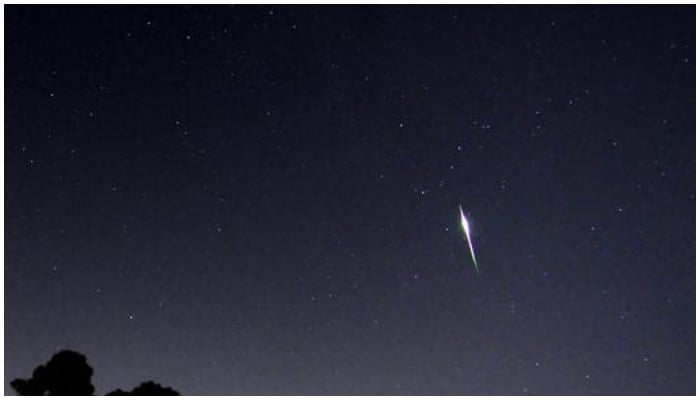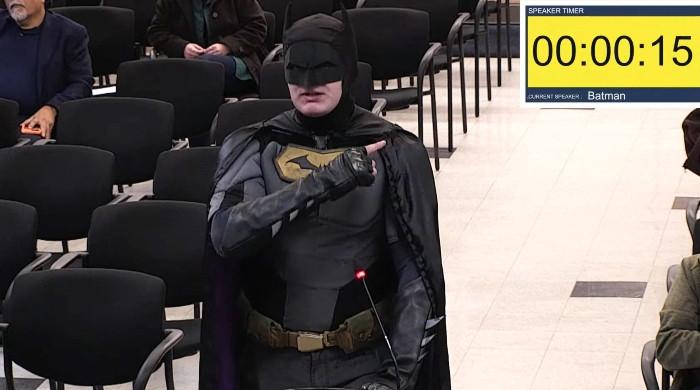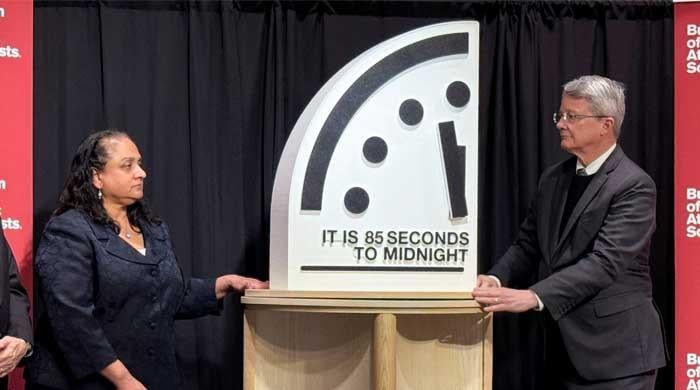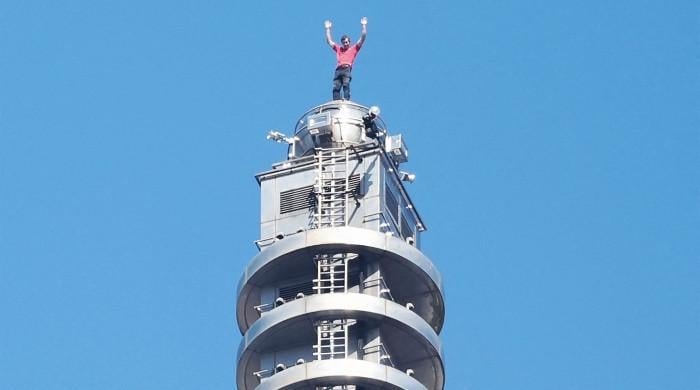Watch: Expert explains why huge meteor appeared over Karachi's skyline
Citizens of Sindh reported seeing a "fast-moving, colourful object" in the sky on Saturday evening at around 7:15pm
January 31, 2022

KARACHI: A huge fireball meteor appeared over Karachi's skyline on January 29 which stargazers caught on camera.
As a video of the meteor went viral on social media, it left netizens amused and puzzled as to what the phenomenon meant. According to social media users, they saw a "fast-moving, colourful object" in the sky on Saturday evening at around 7:15pm.
Speaking to Geo.tv, weather expert Jawad Memon — who owns the popular Facebook page "Weather Updates PK" — said that many people on his page have been posting about witnessing a "huge fireball" on the sky in Karachi as well as other parts of Sindh. Many people also reported hearing the sound of an explosion in the sky accompanying the shiny object.
"Basically, these shiny objects, called meteoroids (rocks from space), travel towards the Earth quite often. They are quite small in size, and when they enter the Earth's gravitational field, they burn up to form a shooting star," he said.
'Shooting stars'
Memon explained that since these meteors are coming from space, they accompany different types of gases and chemicals.
"When they enter the Earth's gravitational field, the ensuing friction —together with the presence of gases and chemicals — burn them up," he said.
As these meteors burn, they often project colourful lights, ranging from blue, green, yellow, or orange.
"Since they are very small in size, they burn while they are still in the air," the weather expert said. "And because they don't touch the ground, they pose no threat to Earth or the population."
Sonic boom
As far as the sound of an explosion is concerned, Memon explained that since these meteoroids are travelling towards the Earth at a great speed, they create "shock waves" when they enter our atmosphere.
"This type of explosive sound is called a sonic boom," he said, adding that it happens when an object travels through the air faster than the speed of sound.
"Sonic boom is also a common phenomenon. When fighter jets are travelling through the air at a supersonic speed at a certain height, they also create a loud explosive sound," Memon said.
Do they pose a threat to Earth?
Shedding light on the shooting star which was recently witnessed in Sindh, Memon said that the spectacle is pretty common.
"Such spectacles are witnessed in different parts of the world from time to time," he said. "These are especially common in the North and South Poles of the Earth because of the gravitational force there, however, they seldom touch the ground."
He said that celestial objects could only harm the Earth if they are too big in sizes, such as asteroids or huge rocks.
"Different space agencies across the world continually monitor such situations and if there is a real danger, they issue timely alerts," he said.
"But the meteors which people in Sindh witnessed a day ago are harmless."











